The Daily Northwestern
7 CITY/Community Meeting

7 CITY/Community Meeting
Even for casual passersby, Artem Pop Up Gallery on Sherman Avenue is hard to miss. Paintings, sculptures and handmade jewelry gleam through its spacious glass window. Behind it, the warmly lit gallery awaits customers.
Owner Sarita Kamat, a multidisciplinary artist who moved from India to the U.S. two decades ago, said the gallery represents about 75 local artists. Half have been with it since it opened in 2019, while the other half rotates throughout the year. She also sells some of her own pieces along with those of the other artists, she added.
This month, Artem is participating in May Mart, an event organized by the group Evanston ASPA to celebrate and showcase diverse cultures in Evanston through its Asian, South Asian and Pacific Islander Americansowned businesses.
There are about 70 ASPAowned businesses in the city, according to Evanston ASPA. They include art stores like Artem, restaurants, cafes, home decor shops and salons.
Inspired by the street markets that are part of many Asian cultures, Melissa Raman Molitor, founder of Evanston ASPA, organized the first May Mart event in 2022.
This year, the rules for May Mart remained mostly unchanged. Molitor said those interested in participating can first pick up a May Mart postcard at a participating ASPAowned business or print their own. After participants visit five of those businesses and receive stickers for their postcard, they can then email a photo of the completed card to Evanston ASPA and enter a raffle for a $100 E-Town Gift Card that can be used at local shops.
Although support structures for ASPA-owned businesses, such as the Asian American Chamber of Commerce of Illinois, have recently taken root in Chicago, Molitor said they have not yet expanded to include Evanston businesses.
“(May Mart) is our local
» See MAY MART, page 6
AUDIO/Digital Diaries
Students brace for takeoff with Mayfest’s alien-themed Dillo Day

Students have written a petition in response to the University’s rollback of COVID-19 mitigation strategies, which has since garnered more than 90 signatures.
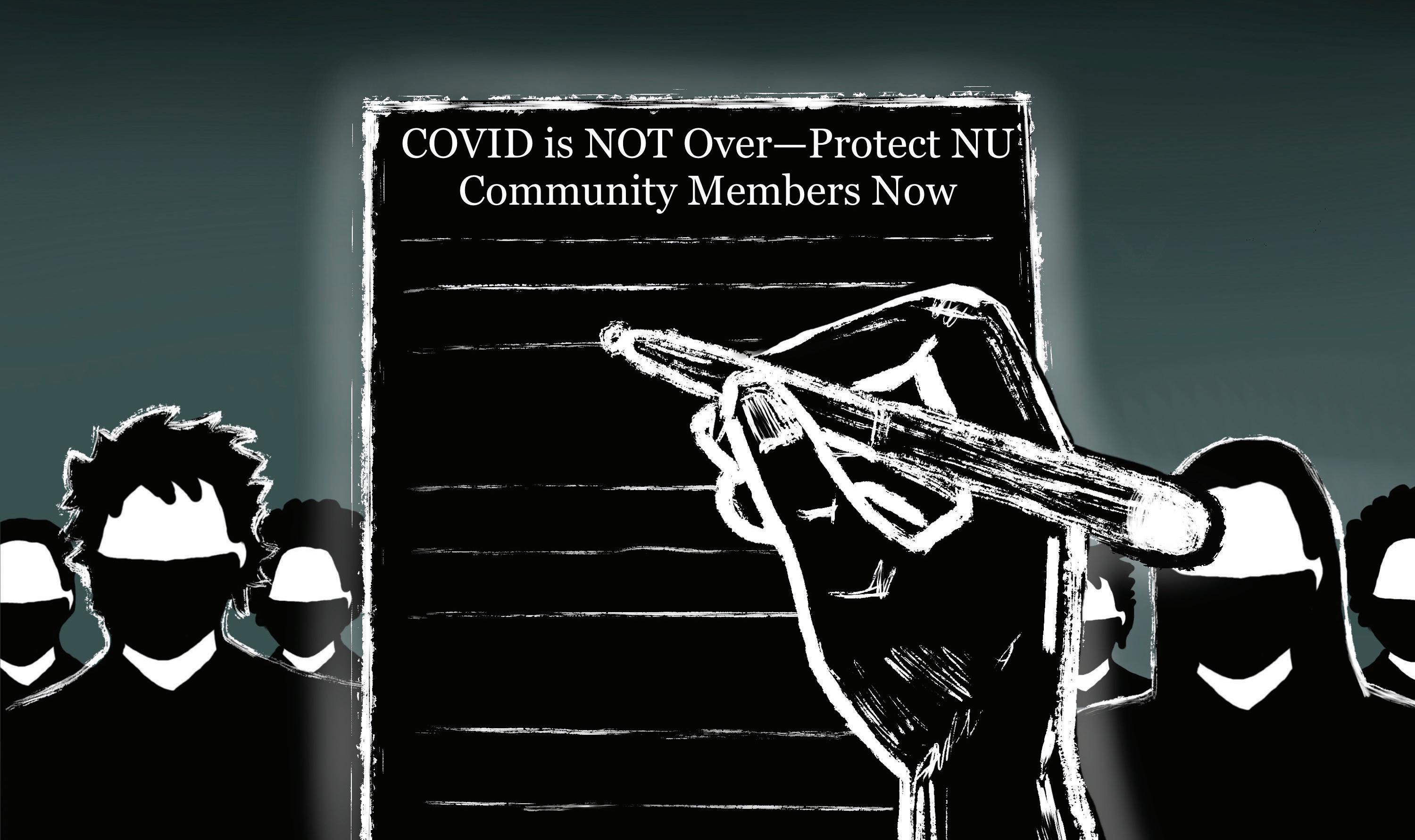
In April, Northwestern announced it will discontinue certain existing COVID-19 mitigation strategies for the next academic

year, including isolation housing in 1835 Hinman, on-campus testing in the Donald P. Jacobs Center and the current COVID-19 vaccine requirement for most students. But some students have expressed concerns about how the changes will impact those who are at high risk for COVID-19.
Marissa Domantay has been an artist for as long as she can remember.
“I’ve just always been drawing,” Domantay said. “My dad said I always drew on the walls, so I guess my art just started when I was a little baby.”
Domantay originally went to school as a math major, minoring in art, but switched to majoring in art and minoring in math by graduation.
Domantay said she always had an interest in digital art and drawing, and started drawing on Nintendo 3DS.
Domantay’s skills have grown since her 3DS days. She now uses her iPad and Procreate to create her art, which ranges from Filipino-inspired graphic designs to digital drawings of mushroom forests.
Now, her work is exhibited in the Sinag art exhibit at Evanston’s Coffee Lab. Sinag is a Filipino-American artists organization, and the shop will display the exhibit for
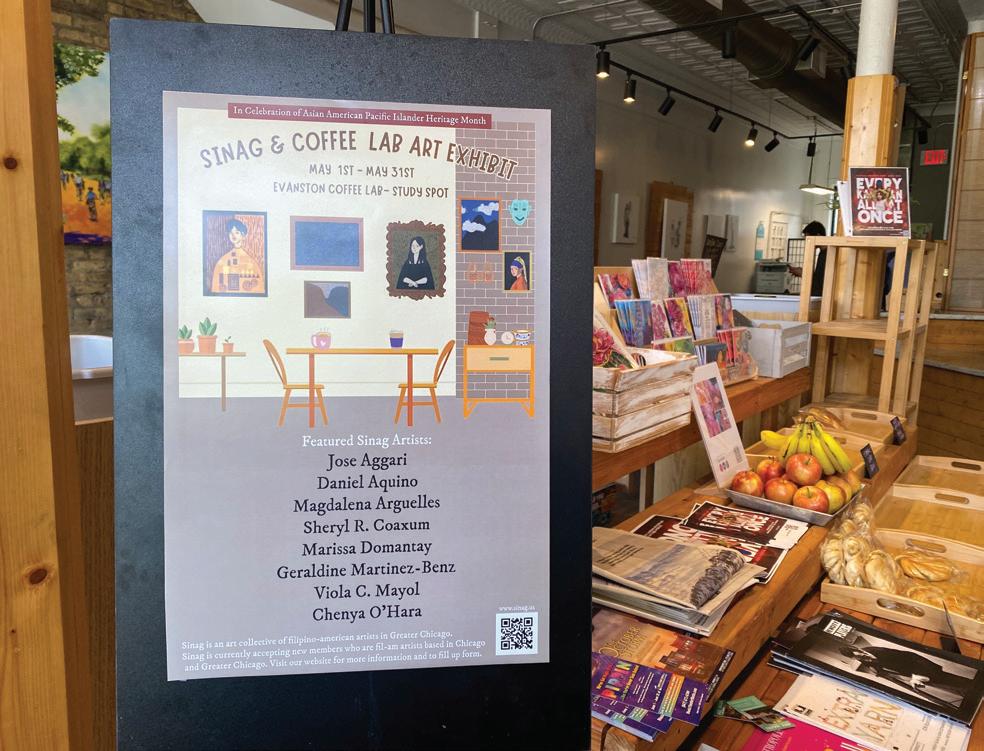
all of May to celebrate Asian, South Asian, Pacific Islander American Heritage Month.
Geraldine Martinez-Benz founded Sinag during the COVID-19 pandemic in February 2021 to foster community among Filipino artists in the U.S. Martinez-Benz herself is a painter and moved to Evanston from the Philippines 20 years ago.
“Before (Sinag), I didn’t even know other Filipino artists personally,” Martinez-Benz said. “I just read about them.”
This is the first year Sinag has hosted an art exhibit in Coffee Lab. Martinez-Benz said she wanted to collaborate with Coffee Lab after learning its owner, Daniel Aquino, is Filipino.
Martinez-Benz said she hopes the exhibit helps build awareness of the Filipino artist community in the Chicago area.
“When (people) meet Filipinos, they always immediately assume we’re nurses,” Martinez-Benz said. “But there’s artists also. It’s a different look for Filipinos.”
Another artist featured in the exhibit is Jose Aggari, a FilipinoAmerican artist who works with
nature to inspire his artwork.
Aggari said he uses a painting technique called Kut-Kut — which he didn’t even know was a Philippine technique until recently.
For him, celebrating AAPI art is important because it’s a way to embrace a shared culture by providing a voice for the AAPI community.
“There’s so much injustice, discrimination and violence
going on against the AAPI community, and we do respond to that and we try to help each other out, one way or another, through art,” he said. “It’s very difficult, at times, to deal with, but at least we’re out there, and we’re making a voice within our community.”
Through Sinag, Domantay and other members visited the
» See SINAG & COFFEE , page 6
On May 1, a group of graduate students authored an open letter to the NU administration listing 10 demands concerning the University’s rollback of protections, including the reinstatement of a vaccine requirement and public COVID-19 dashboard, among other items. The letter has since
garnered more than 90 signatures from NU community members. Fifth-year Ph.D. candidate Emma Kennedy helped write the petition, alongside others in the NU Graduate Workers union. According to Kennedy, the group » See COVID, page 6
Content warning: This story includes mentions of sexual assault and murder.
As part of Multicultural Student Affairs APIDA programming, Chicago nonprofit KAN-WIN facilitated a workshop and presented a timeline about gender-based violence in Asian Pacific Islander Desi American communities Tuesday.
KAN-WIN provides services like legal advocacy and support groups to those affected by gender-based violence. The nonprofit aims to work toward women’s empowerment across Asian American communities. KAN-WIN’s education outreach coordinator Arthi Jacob spoke alongside youth and young adult
organizer Abbey Zhu (Weinberg ’22).
The presentation covered the time period from 111 B.C.E. and ending with the present. Each slide covered a significant event related to gender-based violence, including the Bangladesh Liberation War (1971), Chinese imperialism in Vietnam (111 B.C.E.) and the founding of KANWIN (1990).
“We created this timeline to talk through how our experiences of gender and gender oppression as Asian women are highly racialized,” Jacob said. “The oppression of Asian and Asian American women under patriarchy is inextricable from histories of racism, colonialism, imperialism, militarism and immigration.”
The presenters invited the audience to talk about common themes across history, as well the differences. They facilitated discussion about how past gender-based violence intersects with the present.
» See KAN-WIN, page 6
Erich Kho, resident of Elgin, Illinois, has been visiting Village Creamery for five years, even though the drive from his house to the Niles storefront takes about an hour.
Located at 8000 Waukegan Road, the familyowned store is a simple establishment that, if not for a large sign brandishing its name, would blend in with its surroundings. The interior is equally no-frills, featuring plain walls, majorityblue furnishings and orange-cushioned chairs.
For Evanston residents who crave Village Creamery but cannot make it to Niles often, they are now in luck. The store is now offering prepackaged ice cream at Coffee Lab Evanston as part of a new collaboration between the two businesses.
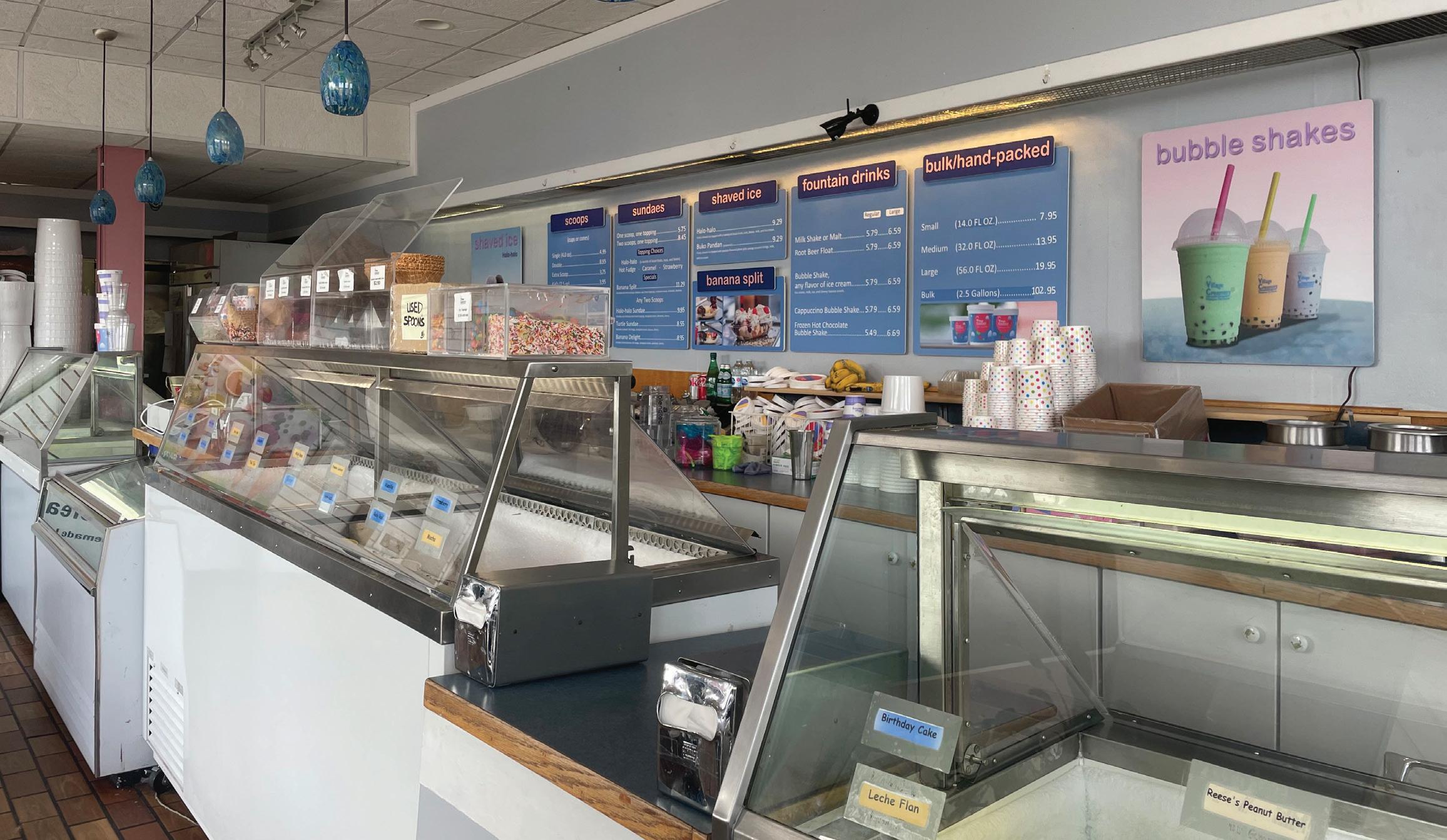
Kho likes to order a scoop of the sapin-sapin ice cream in a waffle cone, which he said is the store’s best flavor. The sapin-sapin flavor takes inspiration from the Filipino glutinous rice and coconut dessert.
Sapin-sapin is just one of several Filipino culinary tastes offered at Village Creamery, which include halo-halo, buko pandan, leche flan and macapuno. Owned and operated by the Valeroso family, the store has been serving up Filipino flavors since 2001.
“They do their ice cream fresh from scratch … That’s what I really like about this place compared to others, and their ice cream is not too sweet,” Kho said. “This is the best place to get some ice cream and some halo-halo.”
Halo-halo is a Filipino dessert made of shaved ice, evaporated milk and ice cream with various toppings, often eaten in the summertime. The store offers the iconic treat as well as an ice cream version.
Kho said he and his partner enjoy traveling and finding the best places to eat, which is how the pair ended up becoming Village Creamery regulars.
Coffee Lab employee Eunice Canda said
Village Creamery perfectly captures her “childhood memories” in the Philippines, with authentic flavors that remind her of street ice cream vendors in the country.
Canda said Coffee Lab decided to partner with the store because it is family-owned and promotes high-quality Filipino food beyond simple fruit flavors.
“It’s only now that we’ve begun evolving regarding the Filipino food and desserts,” Canda said.
In suburban Illinois, Filipinos are still a

minority despite their growing presence, which is why culinary spaces like Coffee Lab are important to make them feel at home, she added.
Village Creamery employee Christian Mendoza said the store’s variety of unique flavors draws many customers, but that they are not as unusual as some may think.
“They’re definitely more popular. People do come here for, they say, ‘exotic flavors,’ but in the Philippines it’s regular,” Mendoza said. He said ube is the most popular ice cream
flavor among customers, and when the weather gets hot — especially in the summer — the line for ice cream usually extends out the door. Mendoza has worked at Village Creamery for two years. His uncles influenced his decision to work there since they worked at the same place years ago, he said. But he stays at the store for a different reason.
“I just really like it here,” Mendoza said. “And the ice cream is really good.”
beatricevillaflor2026@u.northwestern.edu

When the Chicago Symphony Orchestra performed Florence Price’s Symphony No. 1 in E minor in 1933, she became the first Black woman to be recognized as a symphonic composer. Though she is foundational to modern classical music, she doesn’t receive the same recognition as white composers.
But the Bienen School of Music hopes to recognize the many contributions of composers like Price. The school is currently working on expanding its repertoire to include more Black composers like Margaret Bonds (Bienen ’33, ’34) and Julius Eastman, along with work by other marginalized artists.
Bienen Prof. Karen Brunssen is one of the school’s major players in the push to develop a more representative music curriculum. Bienen has instituted a two-phase program to ensure these changes, Brunssen said.
Phase one lasted two years and started around 2020. Every student was required to learn two or more pieces by Black composers, though Brunssen said many students didn’t stop there, with some learning sets or anthologies.
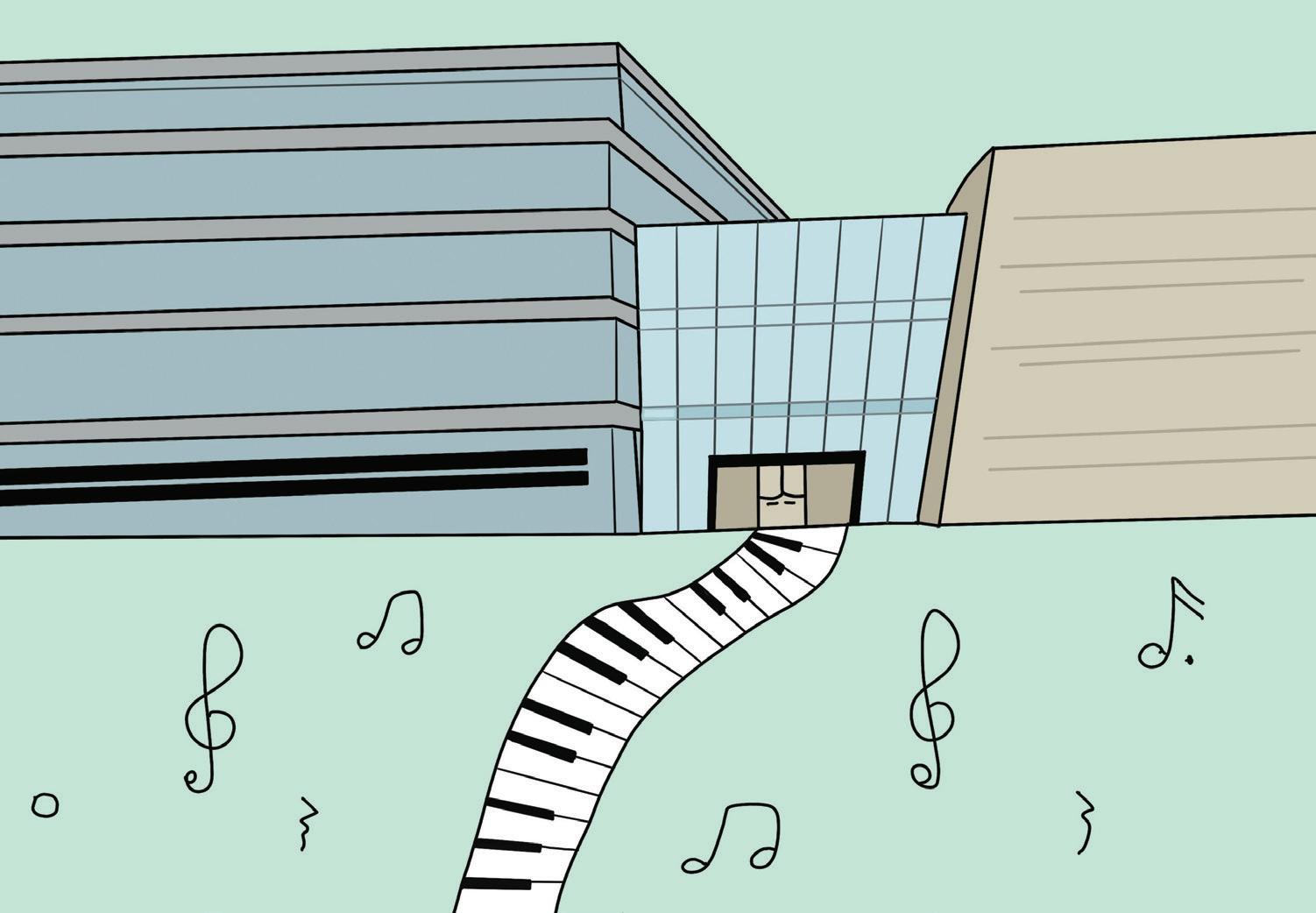
With this phase, students had the opportunity to learn about the composers, Brunssen said.
“We kept a list of what they had chosen to do,” Brunssen said. “They got to decide what they wanted to do, which then takes them out to the internet to find out … who are the composers.”
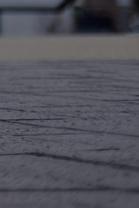
Phase two is currently underway and involves developing more permanent resources to make Bienen into a more equitable institution.
First-year voice and opera performance graduate student Uma Singh, who works under Brunssen, is heading the creation of a spreadsheet that provides 17 databases of music from underrepresented composers. The spreadsheet also includes musicological resources and sheet music from composers of different genders and cultural backgrounds.
“You often just seem to see the same (things in classical music curriculum) — a bunch of Mozart and a bunch of stuff like that,” Singh said.
“It was really important to highlight work by living composers, as well as composers of color.”
Art creates humanization, empathy and connection, which help dismantle systems of racism and bigotry, Singh added.
Singh, who is half-Indian, said it is “fulfilling” to work with music by composers whose identity closely intertwines with her own.
“I know people of other genders and races feel similarly when we may see music that connects them back to their foundational part of their identities,” Singh said.
Bienen and Communication sophomore Justice Gardner said Bienen Prof. Robert Reinhart works to include composers traditionally outside the classical canon in his curriculum.
“While we are performing (more traditional classical pieces), it’s taking time away from work we can be performing by other composers or techniques or sounds made by other cultures,”
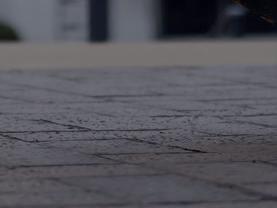
Gardner said. “We aren’t exploring that.”
He said he’s noticed that the musicology program offers a diverse range of music composition and history, focusing on areas like the Soviet republics, Spain, the Middle East and Latin America. But other majors may not get the same exploration of world music, Gardner said.
Brunssen hopes the school’s two-phase program will change the broader American view of classical singing as students graduate and move outside of the classroom, she said.
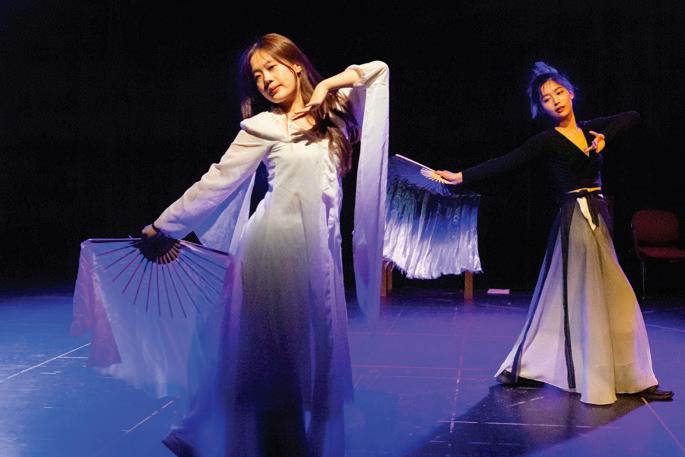
Singh and Brunssen hope the spreadsheet will provide easy access to these diverse materials.
“What I wanted to see happen … is that we give (students) more resources that they can take with them in the door here at Northwestern while they’re here, but take (the resources) out when you’re done too,” Brunssen said.
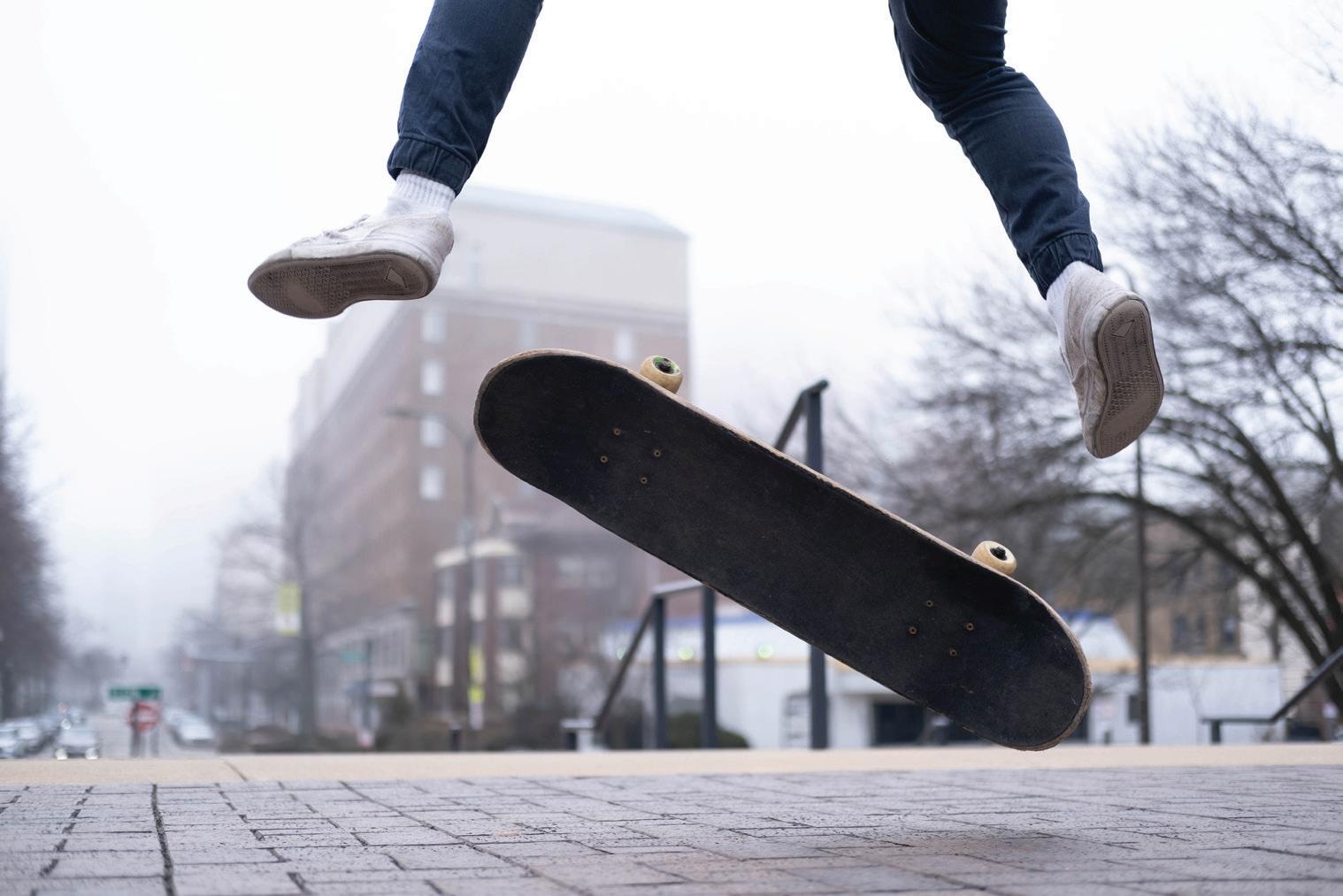
virginiahunt2026@u.northwestern.edu
The Daily Northwestern www.dailynorthwestern.com
Editor in Chief Alex Perry eic@dailynorthwestern.com
General Manager Stacia Campbell stacia@dailynorthwestern.com
Holly and John Madigan Newsroom
Phone | 847.491.3222

Campus desk
campus@dailynorthwestern.com


City desk city@dailynorthwestern.com
Sports desk sports@dailynorthwestern.com
Ad Office | 847.491.7206
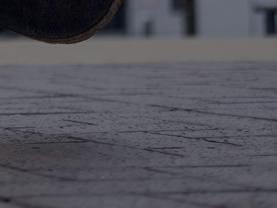
spc-compshop@northwestern.edu
The Daily Northwestern is published Monday and Thursday during the academic year, except vacation periods and two weeks preceding them and once during August, by Students Publishing Co., Inc. of Northwestern University, 1999 Campus Drive, Evanston, IL 60208; 847491-7206.

First copy of The Daily is free, additional copies are 50 cents. All material published herein, except advertising or where indicated otherwise, is Copyright 2020 The Daily Northwestern and protected under the “work made for hire” and “periodical publication” clauses of copyright law.
POSTMASTER: Send address changes to The Daily Northwestern, 1999 Campus Drive, Evanston, IL 60208. Subscriptions are $175 for the academic year. The Daily Northwestern is not responsible for more than one incorrect ad insertion. All display ad corrections must be received by 3 p.m. one day prior to when the ad is run.
Deadline for submissions:
Friday, June 2, 2023
1st Place - $200
2nd Place - $150
3rd Place - $100
Hon. Ment. - $50
For entry rules & form visit dailynorthwestern.com/kkphotocontest
Chloe Braswell
Wyatt Browdy
Maxine van der Donk
Theo Faugeres
Aja Frazier
Zach Gershowitz
Jason Huang
Inaya Hussain
Scott Hwang
Andres Kaneb
Leo Kurland
Jovana Lakic
Cate Rose
Janice Seong
Margaret Sprigg-Dudley
committed to occasionally subcontracting with women-owned businesses during the construction process. That’s a start, but we need to think more creatively.
In a report endorsed by the Faculty Senate in fall 2022, the Organization of Women Faculty proposed using Ryan Field as a daytime childcare facility. F.C. St. Pauli did precisely that in Germany, creating what The New York Times called “the World’s Coolest Kindergarten.” Has NU considered this proposal?
As faculty members and sports fans, we have followed the conversations about rebuilding Ryan Field with a mix of interest and uncertainty. So far, debates surrounding the proposed redesign emphasize town-gown relations: Should Evanston let NU hold major outdoor concerts in a residential neighborhood? Should the University increase financial contributions to the city in lieu of taxes? How would a new stadium shape Evanston’s economy?
To these important considerations, we add another: What would a new Ryan Field mean for gender equity? Fueled by the largest gift in NU’s history, the University plans to channel $800 million into a facility built primarily for male athletes.
Half a century after Title IX’s passage, NU must close the gap between men’s and women’s sports rather than widening it. As NU athletic director Derrick Gragg wrote last summer, NU “remains dedicated to advancing progress” for “the representation, inclusion, and engagement of women.” We’d therefore like to know how a new stadium would further NU’s commitment to gender equity. The University must explain how it would couple its $800 million investment in a men’s stadium with similar investments in female studentathletes, and in gender equity more broadly.
A state-of-the-art stadium isn’t necessarily incompatible with gender equity. NU has already
Here’s another idea: Instead of raising money by hosting loud outdoor concerts, would the University consider collaborating with women’s sports franchises throughout the region? The Chicago Red Stars, home to three Wildcat soccer alumnae, currently play in Bridgeview, a suburb southwest of Chicago. Might the Red Stars welcome a move to Ryan Field, closer to the city and easily accessible on public transit? For advice on how to flip a football field into, well, the other kind of football field, we can ask the crew at Soldier Field — home to the Chicago Fire and, at least for now, the Chicago Bears.
We understand that the focus on football is a dominant model in Division I sports and part of a broader culture that NU can’t singlehandedly change. Yes, football makes money, and that money helps fund women’s sports. But the disproportionate revenue generated by men’s sports reflects the inequality that shapes our society more broadly. As an institution of higher education with a valuesdriven athletics program, NU should push to change the system rather than acting in ways that sustain it. We should be leaders in increasing exposure for women’s sports on campus and beyond.
In our new age of name, image, and likeness policies, when student-athletes translate attention into money, these issues of publicity and exposure demand heightened transparency. The money NU
invests in athletics can influence students’ income, rendering gender disparities all the more disquieting.
Seen in this context, Northwestern’s public relations campaign for the new stadium offers cause for concern. The University touts the new stadium as an opportunity to “showcase Northwestern University to an even broader and more global audience,” especially now that the University of Southern California and UCLA are joining the Big Ten. If the renovations proceed, will Northwestern commit to spending similar amounts of money to showcase its female student-athletes to that global audience?
For one, there’s a cost for boys and girls who grow up observing that men, far more than women, are celebrated for being powerful and assertive. There’s also a cost to elevating football above other sports. We’ve already seen that cost in the recent experiences of Northwestern’s cheer team, whose reports of sexual harassment and racism went unaddressed for far too long as University leaders prioritized football fundraising over the safety of female student-athletes.
As Washington Post columnist Kevin Blackistone (Medill ’81) concluded, Northwestern’s disregard for the cheer team — exacerbated by Mike Polisky’s disastrous promotion to Athletics Director in 2021 — demonstrated that “women remain disrespected in sports by the men who run them.” What has Northwestern done to dismantle these structural inequities?
Relatedly, Northwestern must release more information about its advertising practices. How much money does Northwestern spend on external ads for each of its men’s and women’s teams? Is the amount currently equal by gender? If not, will Northwestern commit to equalizing its ad buys?
“Only private dollars, all public benefits” — so say the marketing materials for the Ryan Field revamp. But as scholars of History, Political Science, Anthropology and Religious Studies, we know that inequity has costs, too.
The time is ripe for further investments in women’s sports. Viewership and revenue is already growing — just ask those of us who tried to find tickets to Northwestern’s sold-out women’s lacrosse games this spring, or the over 12 million fans who tuned into this year’s women’s March Madness final. A recent study by Deloitte consultants concluded that “women’s sports has immense potential value, not just in monetary terms, but also in terms of what it signals for gender parity.” “All interested parties” must act, Deloitte emphasizes. We believe Northwestern can and should take the lead. For starters, University leadership should publicly answer the questions we’ve posed in this letter.
If you would like to respond publicly to this op-ed, send a Letter to the Editor to opinion@dailynorthwestern.com. The views expressed in this piece do not necessarily reflect the views of all staff members of The Daily Northwestern.
own. The unemployed have it worse even today, without a sense of belonging outside or inside of the factory.
Simone Weil’s “The Need for Roots” describes the human need for rootedness through one’s involvement in “a community which preserves in living shape certain particular treasures of the past and certain particular expectations for the future.” Writing this book in the midst of World War II, Weil was reflecting on the uprooting taking place at the time and considered uprootedness as equal to any of humanity’s problems.
Weil defines uprootedness as being cut off from the needs of the soul. The needs she lists out — such as order, liberty, obedience and responsibility — include fairly debatable ones, especially in the context of contemporary moral frameworks. Regardless, Weil argues these needs are just as vital to our being as food and water. Most of them boil down to place, community, purpose and a sense of connection to a past and future. We can probably substitute in some needs of the soul contingent to our own lived realities.
Weil then argues that aside from the obvious uprootedness that takes place when a population is geographically displaced from its land, the factory worker and the peasant were also uprooted. The subject of pay forever occupied the attention of the factory worker, while peasants labored their lives away on land they didn’t
But if we permit ourselves to take a liberal conception of uprootedness and perhaps stretch Weil’s definition, we find that uprootedness is also a condition of wealthy elites. To recycle an analogy I used in a previous column, the rich have apartments in high-rises strung out across the globe. They island-hop between the isles of their archipelago of properties with ease and whimsy, while the rest of us seem tethered to one place we always seem to go home to on school breaks. What connection do they actually hold to any of the communities in which they happen to reside at any given moment?
The
.
- GRANT
This disconnect from place, in its own curious form, is a lack of roots that produces ill effects the rest of us are left to deal with. The elite effectively never have to touch the earth with their apartments as high off the ground
as possible. When they leave their building, they get chauffeured. Their children then go to schools where they might never interact with someone of low income.
In hardly ever interacting with anyone but their own kind, the wealthy end up with politics that regard nobody but themselves. It’s a lot harder to have compassion for people you never meet. The rich perhaps engage in local politics when their taxes increase or when someone wants to build something blocking their precious view. Otherwise, they lack stakes and are thus apathetic to whether the rest of the community succeeds or suffers when the effects don’t touch their bottom line. If developments do start to encroach too far on the bottom line, the wealthy will just move their assets to the next tax haven. On a larger scale, negative effects are more apparent. Our government often seems captured by the rich, who dictate the most policy in a selfaggrandizing fashion, while the people who need the most get the least say.
We also see this outside of politics when the rich pursue follies that would have been avoidable if they kept more in touch with reality. One of the most recent examples is Elon Musk’s purchase of Twitter. Not that Twitter was a particularly wonderful platform before, but it certainly has not done any better with Musk at the helm. He recently announced that he would be stepping down as CEO of the social media site to focus on Tesla.
Another example is Quibi, the short-form streaming platform conceived by former Walt Disney Studios Chairman Jeffrey Katzenberg.
When soon-to-fail Quibi ads flooded every corner of the internet during the pandemic, Katzenberg and his investors probably thought they knew exactly what the masses wanted, when they really did not have a clue.
The average person could easily see that these ideas weren’t the wisest, but a severe case of detachment from reality will do that to you. In any case, a lack of roots, whether among the poor or the rich, will wreak havoc on society. It’s hard to make someone with so few roots in a community — whether it be their local government or the U.S. as a whole — care about it to any meaningful extent.
Meanwhile, the well-being of particular communities matters much more to those who are rooted in them. Where rooted, we keep in contact and coexist with fellow community members who are equally or more vulnerable than we are. We ultimately come to depend on one another and the community outcomes that impact us and our friends.
Although the latter two examples of rootlessness certainly harmed plenty of people, for the most part they were more funny than bad. And at least they failed, perhaps to our collective benefit. Yet we should be wary, as not all manifestations of uprootedness among the wealthy are so benign.
Grant Li is a Weinberg senior. He can be contacted at grantli2022@u.northwestern.edu. If you would like to respond publicly to this op-ed, send a Letter to the Editor to opinion@dailynorthwestern.com. The views expressed in this piece do not necessarily reflect the views of all staff members of The Daily Northwestern.
Half a century after the passage of Title IX, NU must close the gap
Content warning: This article contains mentions of death.




More than 700,000 Palestinians faced displacement around 1948, during that year’s Arab-Israeli war following the end of the British mandate over the region. Villages were destroyed and many were forced to flee from their homes. Thousands more were murdered in massacres.
Seventy-five years later, Palestinians continue to remember the Nakba, which loosely translates to “catastrophe” in English. Nakba Day, which takes place every year on May 15, commemorates the ongoing displacement of these refugees and their descendants.
About 50 students gathered in a circle at The Rock to commemorate Nakba Day at a vigil hosted by Students for Justice in Palestine on Monday evening. Attendees held candles as SJP member and Weinberg junior Muhammad Saleh, who helped organize the vigil, spoke about the importance of remembrance and resistance when looking back on the Nakba.
“The atrocities committed during the Nakba are a testament to the horrors of colonization and the ongoing oppression faced by the Palestinian people,” he said. “We must remember that the Nakba was only the beginning. Today also marks 75 years of occupation, 75 years of dehumanization, 75 years of apartheid and 75 years of ethnic cleansing.”
The vigil concluded with a moment of silence, giving attendees a chance to offer prayers or reflections.
SJP member and Weinberg freshman Jannah Issa said she sees and feels the lasting impacts of the Nakba in her own life. Her family in Palestine has been “pushed to certain places” and she said she cannot go into most holy sites in Israel and Palestine due to her Palestinian ethnicity.
Issa said she was happy to see the solidarity in the crowd because activism can at times feel isolating or lonely. A large part of Palestinian resistance is about letting one’s presence be known, she said, and it is meaningful to have community support both inside and outside of SJP.
“(Resistance is about) making it known that you’re here and you’re not going to stop fighting … being stubborn, staying where you are and always pushing back and no matter how hard they push you.” Issa said. “A lot of Palestinians keep their keys for their old homes. No matter what happens to them, one day they hope to return back home.”
Saleh echoed some of Issa’s sentiments. Coming to Northwestern, he said, he did not expect to meet many other Palestinian students. Meeting both Palestinian and non-Palestinian students who supported his community made him feel like he belonged.
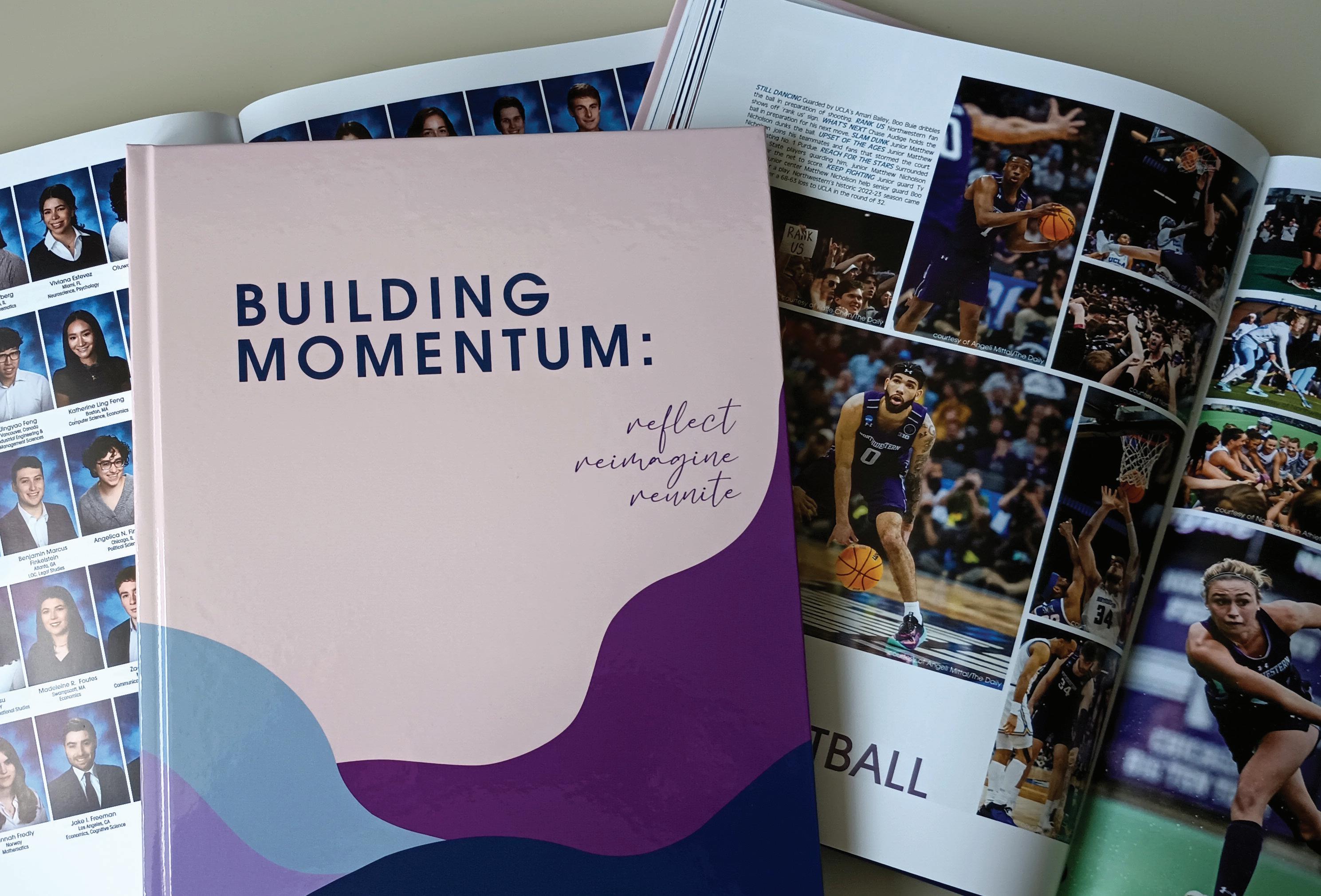
He said Nakba survivors should not be forgotten because their descendants still suffer today. Because these refugees refused to accept the injustices happening to them, Saleh said, they paved the way for ongoing resistance. To him, speaking out is one of the most powerful forms
of resistance.
“When we talk about Palestine, we don’t like to simply use victimization terms,” Saleh said. “We like to humanize them by empowering them, showing them what they’re capable of against these supposedly higher authorities that are oppressing them.”
Saleh said the SJP community inspires him to speak out and try to inform others on causes he cares about.
On Tuesday, SJP will host a workshop teaching tatreez, a Palestinian embroidery style. Communication sophomore Rama Darayyad said the art is often displayed on Palestinian clothing or accessories.

“I find this one of my favorite forms of resistance because I’m actually wearing it,” Darayyad said. “It reminds me of my grandma, who, when she was forced to flee from Palestine, would wear her tatreez proudly as a form
of resistance.”

Darayyad’s parents were born and raised in Palestine. During the Nakba, her father’s side of the family fled to Jordan, while her mother’s side of the family remained in Jerusalem and still is there today. She said it’s “an everyday struggle to be Palestinian” there.
She said she hopes people will recognize the ongoing occupation of Palestine. The 75th anniversary of the Nakba marks the first time the U.N. has recognized the mass displacement, though 30 countries — including the U.S. — voted against the resolution to adopt the commemoration.
“I want people to realize that my people are not hidden,” Darayyad said. “We have lives, and I’m happy to represent that and persist in resistance.”
joannahou2025@u.northwestern.edu
had been having informal conversations to take action since early April. But after NU officially announced the rollback, the group decided to ramp up their efforts and start writing, she said.
“The University has a responsibility to protect its students, staff, graduate workers, faculty and any community member,” Kennedy said. “Having this petition circulate shows the Northwestern administration that there are people who still really care about this.”
In an email to The Daily, University spokesperson Erin Karter said NU’s response to COVID-19 has “always been guided by state and federal guidance.”
Nobody should get sick while doing their job regardless of their occupation, Kennedy said. As a graduate worker, Kennedy said, she was one of the two people wearing a mask in her classroom, which made her feel uncomfortable.


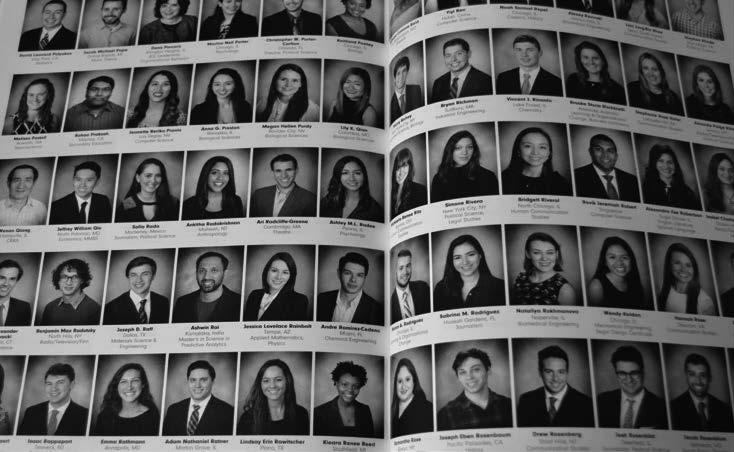
“Being a graduate student, and a graduate worker specifically, you end up in a tight spot when you’re trying to be conscious of public health,” Kennedy said. “There’s an expectation that we have to be in person, but it doesn’t always feel safe to do so.”
Art History Prof. Rebecca Zorach said they signed the petition to support graduate workers, but also because of public health concerns at large.
“There’s a big push to return to normal, but we’re not living with normal conditions,” Zorach said. “It feels important to me for the community to take care of the people within it who are the most vulnerable.”
Zorach found it empowering to see community members from different academic departments sign the letter. She added she prefers a more cautious approach to lifting the mitigations than the administration’s current strategy.

In the petition, anonymous testimonials describe difficulties in navigating campus life without COVID19 guidelines. One person wrote that professors have abandoned practices that made learning accessible, such as recording lectures and posting slides after class.
“Disabled and/or chronically ill students, myself included, are losing resources that would have continued to benefit us,” one person wrote. “People still have disabilities, and AccessibleNU continues to be limited in its ability to address students’ needs.”
Karter said in the email that NU continues to
From page 1
Field Museum and learned about Filipino history by examining fabrics, pottery and other artifacts.
Domantay said she and other Sinag members also volunteer with the Filipino American Historical Society of Chicago.
Martinez-Benz said she wanted to create a space to celebrate the art and contributions of Filipino Americans when she founded Sinag. She said ––in addition to the Coffee Lab exhibit –– Sinag is part of other AAPI month events including the Evanston Umbrella Arts Festival.
provide “reasonable accommodations” to students, staff, and faculty with disabilities who have an approved accommodation through AccessibleNU or the Office of Civil Rights and Title IX Compliance.
Medill Prof. Steven Thrasher, who signed the petition, studies the intersections between racism, homophobia, policing, medicine, incarceration, culture and health. He also looks at how viruses spread and reveal inequalities.
Thrasher said low-wage staff members and people who work in janitorial services are most affected by the pandemic. Unlike a professor or student, he said, they can’t do their job remotely.
“We have a bigger medical and ethical obligation to go beyond what the government’s dictating right now with the public health emergency,” Thrasher said.
“There are very few resources now for people.”
Weinberg sophomore and petition signee Skyler Stone said resources like masks and COVID-19 tests should be readily available. The petition requests the University provide free masks at each building entrance and distribute at-home tests, free of charge.
Purchasing these items is a financial burden, she said.
“As a first-generation, low-income student, masks are the last thing on my priority list in terms of what I spend my money on,” Stone said. “(Masks) are so expensive nowadays, and they’re so necessary for a lot of circumstances.”
Kennedy hopes the petition will raise awareness of the ongoing existence of the pandemic, while also providing an avenue for students to make change. The petition can help students understand they are not alone in their concerns, she said.
At the start of the pandemic, Zorach said, there were broad discussions about mutual aid to support the community during a difficult time. But with the emergence of the vaccine and other mitigation tools, Zorach senses those conversations have been “swept under the rug.”
The petition asks the community to think deeper about this “forgotten” conversation, they said.
Like Zorach, Kennedy emphasized the importance of community care during the pandemic.
“We take care of each other at this point,” Kennedy said. “You can always change. Nothing is set in stone. It’s never too late to help protect our communities.” jessicama2025@u.northwestern.edu
Martinez-Benz said she’s noticed increasing awareness of Asian artists in the Chicago area, which she hopes will continue. In April 2024, Sinag will host a gallery at the Evanston Art Center. Domantay said she is grateful to be part of Sinag, which shows the depth of Filipino culture through art.
“I feel like AAPI representation has only been more present in the more recent years,” Domantay said. “Showing we’re outside of stereotypes is very important.”
kunjalbastola2026@u.northwestern.edu rachelschlueter2026@u.northwestern.edu
THE DAILY NORTHWESTERN is not responsible for more than one incorrect insertion of an ad. Corrections must be received by 10am on the day before ad runs again, call 847-4917206. All Classifieds must be paid in advance and are not accepted over the phone. To run online, ad must run in print on same day. The Daily does not knowingly accept misleading or false ads and does not guarantee any ad or claim, or endorse any advertised product or service. Please use caution when answering ads, especially when sending money.
It is the policy of The Daily Northwestern to accept housing advertising only from those whose housing is available without discrimination with respect to sexual orientation, race, creed or national origin. The presumption is therefore, that any housing listing appearing here is non-discriminatory.
THE DAILY NORTHWESTERN is not responsible for more than one incorrect insertion of an ad. Corrections must be received by 10am on the day before ad runs again, call 847-4917206. All Classifieds must be paid in advance and are not accepted over the phone. To run online, ad must run in print on same day. The Daily does not knowingly accept misleading or false ads and does not guarantee any ad or claim, or endorse any advertised product or service. Please use caution when answering ads, especially when sending money.
HELP WANTED ADS are accepted only from advertisers who are equal opportunity employers. The presumption, therefore, is that all positions offered here are available to qualified persons without discrimination on the basis of race, color, religion, national origin, sex, sexual orientation, marital status, age, handicap, or veteran status.
Jacob told the story of Phoolan Devi. Devi, who later became a Member of Parliament in India in 1996, was subjected to child marriage, abuse and assault. After Devi was assaulted by a group of upper-caste men, she led a raid and shot the men at a river bank.
Though Devi’s story is well-known, casteprivileged people interact with her experience in a way that fetishizes her trauma, Jacob said.
“They’re still … reinforcing this violence against her,” they said. “That’s partly why I added that to the timeline.”
MSA graduate assistant Grace Park said women in APIDA communities, especially those experiencing gender-based violence, cannot rely on legal systems to seek justice.
Park said May Tsubouchi’s murder exemplifies this injustice in the legal system. In 1944, Tsubouchi, who was held at the Poston Internment Camp, was murdered by her co-worker, who had previously stalked and threatened her. However, official camp reports did not take action against the perpetrator.
The government dismissed Tsubouchi’s experiences, labeling her a prostitute, Park said. At the same time, the government used her story to increase state surveillance in an already highly surveilled camp.
Though the legal system claims to support those affected by gender-based violence, that doesn’t hold always true, Park said.
“Those protections are primarily for white, cis women,” Park said. “It often brings greater danger to the women in our communities, femmes, trans folks, nonbinary folks — who try to report and then end up getting
From page 1
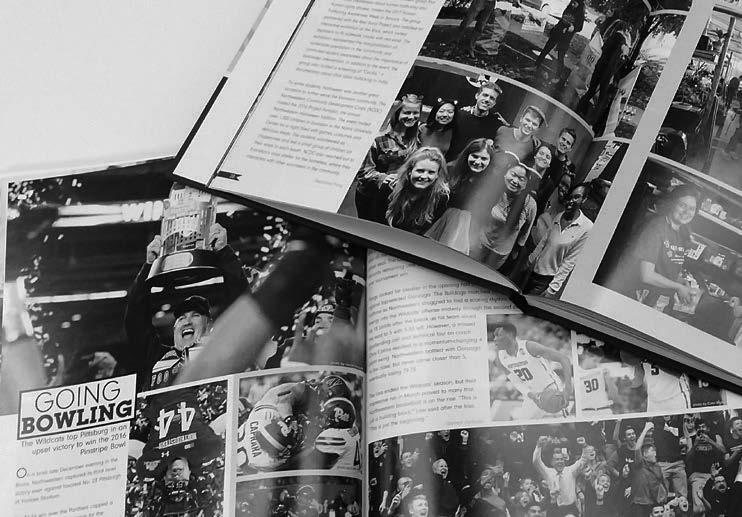
effort to bring people into Asian-owned businesses and increase their customers,” Molitor said. “(The raffle) just gets people involved and engaged.”
Jeff Yang, owner of Chicago Strings, a fullservice violin shop in Evanston, said his store is participating in May Mart and offering a discount on violin strings and accessories.
Sitting before a cabinet filled with violins of different sizes and colors with still more hanging on the wall, Yang, a professional violinist himself, said he first started his own shop from his Rogers Park home in the early 2000s and moved into his Evanston storefront in 2009.
“I’ve always bought and traded instruments when I was younger,” Yang said. “I always buy things at flea markets and yard sales and auctions, and I had a good eye.”
A Taiwanese immigrant who grew up in Seattle, Yang said he appreciates the various ASPA
punished, incarcerated or further surveilled.”
At the end of the presentation, Jacob and Zhu highlighted the war on terror. The 2001 Patriot Act legalized the unconstitutional surveillance of Muslim communities, which contributes to the overpolicing of Muslim women, Jacob said.
Zhu spoke about Yang Song, a sex worker who died in a New York police raid in 2017. The previous year, a police officer sexually assaulted and threatened her at gunpoint. If she didn’t cooperate, the officer said, she would be deported.
Zhu said this case illustrates how policing, imperialism and militarism tie together. These forces are complicit and active agents of violence against AAPI women, Zhu said.
“(There’s the) idea that sex workers or people who are participating in the sex trade are somehow deserving of violence, because they’re inherently immoral,” Zhu said. “What pushes people to participate in the sex trade are also those larger systems of domination and oppression.”
Jacob emphasized the importance of naming violence against AAPI women, whether it be racism, fetishization or imperialism.
Conversations about gender-based violence typically center white, middle to upper class women, according to Jacob. Histories and experiences of Asian and Asian American women have been traditionally excluded from mainstream narratives, Jacob said.
“The solutions generated by the mainstream anti-violence movement that exists as of right now have been ineffective and harmful to Asian and Asian American survivors,” Jacob said. “This is what we want to remedy.”
jessicama2025@u.northwestern.edu


Heritage Month events in Evanston for bringing awareness to diverse Asian cultures and celebrating the “melting pot of everything.”
Although his store is only doing the discount this year, Yang said he wants to be more involved in ASPA Heritage Month events in the future, such as by putting on a music performance for the community. But more importantly, he hopes for a closerknit community of ASPA-owned businesses.
Apart from participating in May Mart, Kamat said Artem is offering a discount on the marble mugs and coasters printed at the gallery for the month. She is also giving out free prints of one of her paintings with purchases.
Since the start of the month, Kamat said, she has already had several customers come to the gallery because of the advertising for May Mart.
“I’m very appreciative of the city and (Evanston ASPA) because they’re trying to divert people to local businesses owned by Asians so that they can support them,” Kamat said.
caseyhe2026@u.northwestern.edu


Northwestern representatives and Mayfest organizers presented harm mitigation strategies to Evanston residents Monday night ahead of NU’s spring events.
The annual meeting centered on its usual topic of conversation: Dillo Day, NU’s yearly student-run music festival scheduled for May 20. In the past, Dillo Day and related student parties have prompted concern from Evanston residents about security.

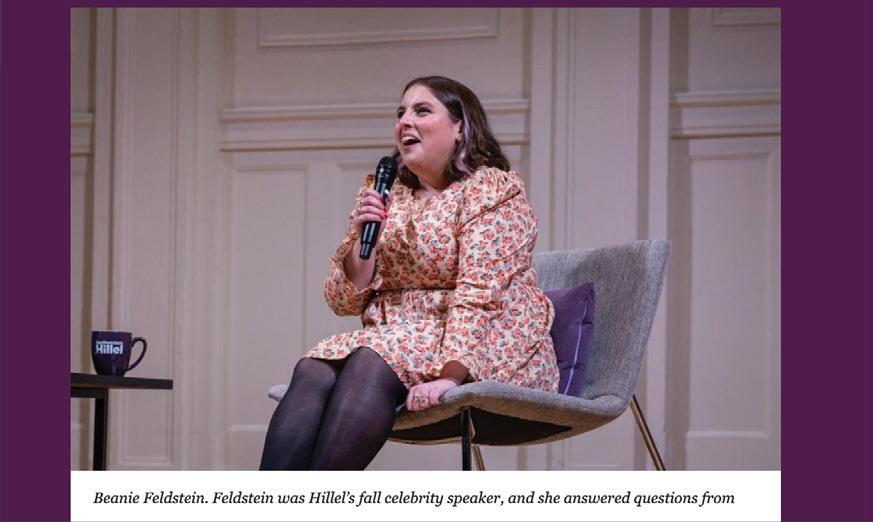
“Our goal is for functional fun,” said Evanston Police Department Sgt. Chelsea Brown. “Although, I think for some community members it, at times, feels like controlled chaos.”
University Police, EPD and private security will be present on NU’s campus and surrounding areas during Dillo Day, according to Eric Chin, the University Police deputy chief of police.
Mayfest’s co-Director of Productions Nicole Tank said the extra officers will provide “deescalation” measures during the event. But Brown said not many violent incidents typically occur during Dillo Day. Most police action relates to alcohol infractions or public urination, she said.
University Police will provide a communication channel to the surrounding community, sharing updates on emergency situations or facilitating noise complaints from neighbors throughout May 20, Chin said.
Brown also said muddy conditions may present safety concerns for the festival this year, and University Police will be monitoring the weather for the event.
However, Chin said NU students should also take responsibility for each others’ safety.
“I want to really stress … (to) our student community members really implementing responsibility as well as relying upon one another to seek medical treatment and be able to mitigate any known situations prior to them rising to the level of intervention,” Chin said.
Tank pointed to the Mayfest’s Smart Dillo campaign, the group’s messaging around campus encouraging drug safety, as an example of preemptive intervention.
Tank also announced members of Mayfest’s student intervention service have been Narcan
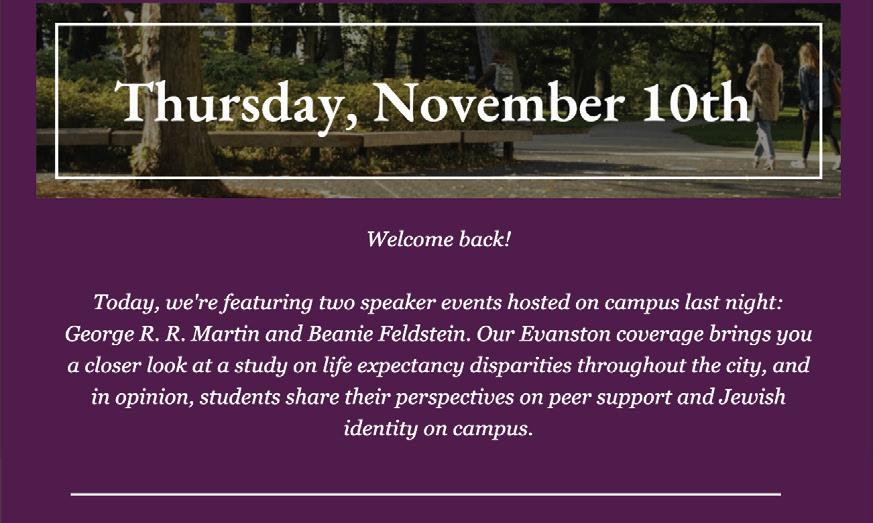
trained this year, in case any overdoses happen during the festival.
Dave Davis, NU’s senior executive director for neighborhood and community relations, also shared the dates for yearly Northwestern events including student move-out on June 10 and the commencement ceremony on June 12.
Unlike in previous years, he said, no Northwestern families will park on Emerson Street for move-out. Move-out traffic has previously caused chagrin from neighbors along the street, Davis said.
Regarding commencement, Davis said the University has sold about 2,700 tickets for commencement

and another 4,000 for convocations from June 9-12.




In addition to annual events, the inauguration ceremony for University President Michael Schill, whose tenure began last Fall Quarter, is scheduled for June 2. Davis said the University is expecting “a few thousand” in attendance for the event, including elected officials, alumni leaders and donors.
Residents did not ask any questions at the meeting apart from a few written queries about the University’s clean-up strategy for Dillo Day.
Jason McKean, NU’s assistant dean of students and director of strategy and operations, said the University’s Associated Student Government has developed
a plan to clean up surrounding areas at 8 a.m. on the Sunday after Dillo Day. He said he will personally be knocking on doors of neighboring houses that haven’t cleaned up by 10 a.m. on Sunday.
McKean also pointed to the Smart Dillo campaign as a way of educating students about their impact to community during Dillo Day.
“The campaign prioritizes safety as well as keeping the Evanston community clean, safe, and quiet and enjoyable for everyone — regardless of whether they’re going to Dillo Day or not,” Tank said. colereynolds2026@u.northwestern.edu
After escaping the NCAA Tournament’s second round with a slim 8-7 victory over No. 15 Michigan on Sunday, No. 1 Northwestern is looking to evade No. 8 Loyola Maryland on Thursday and book a trip to its fourth consecutive Final Four.
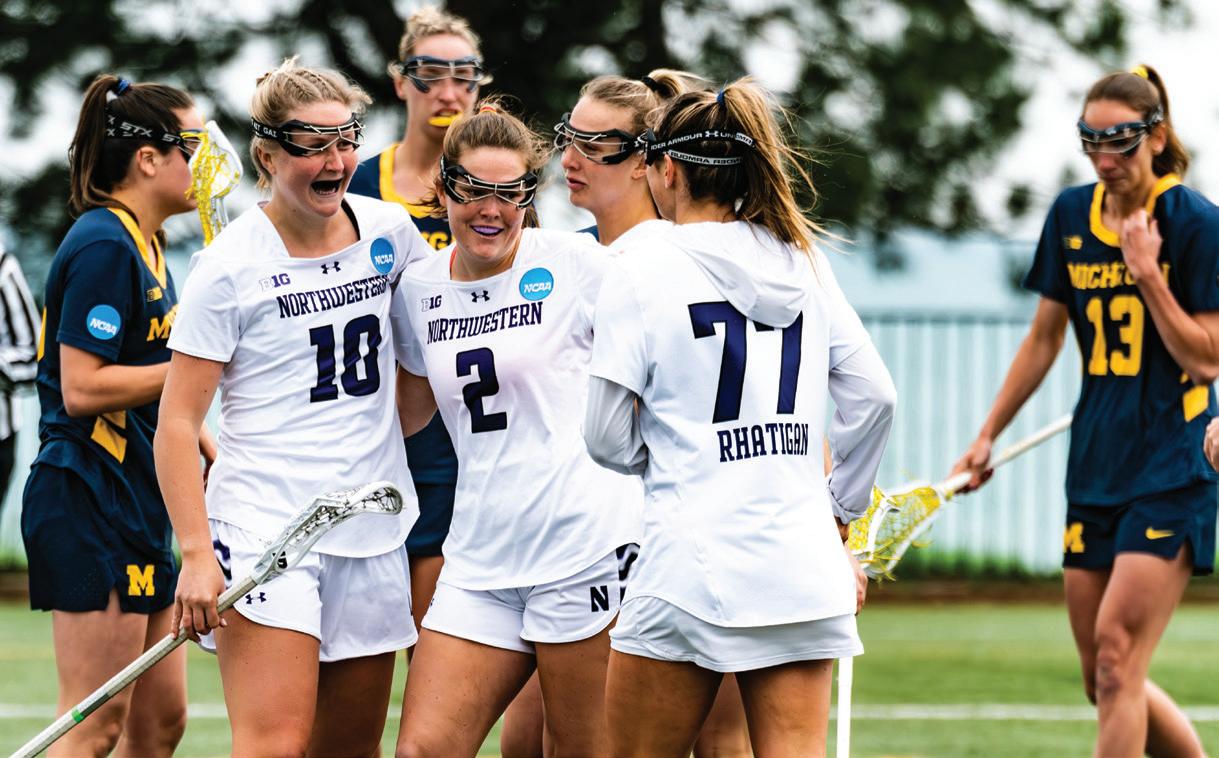
While the Wildcats (18-1, 6-0 Big Ten) cruised through March and April with little
resistance, coach Kelly Amonte Hiller’s team faced an uphill climb for much of its last contest — and the battle-tested Greyhounds (19-2, 9-0 Patriot League) possess significant firepower.
The teams last tussled more than 37 years ago, when NU grabbed a 9-6 win on April 26, 1986 in Baltimore. Since Loyola Maryland won the teams’ only other meeting in 1985, the winner of Thursday’s game will take a 2-1 lead in the historical split.
With a visit to Cary, North Carolina on the line, here are three factors to keep in
mind as the Cats take on the Greyhounds at Martin Stadium in an Elite Eight matchup Thursday night.
A showdown of elite defenses
Loyola Maryland’s identity is rooted in its shotstopping ability. The Greyhounds sit second in the NCAA in goals allowed per game, averaging just 6.67 scores conceded per game.
Graduate student defender Katie Detwiler spearheads the stout defensive unit, which notably held No. 2 Syracuse to 9 goals March 15, tied for the Orange’s lowest scoring output of the season.
The Greyhounds have allowed just one tally on two occasions this season and look to stifle a high-scoring NU attack that failed to find traction in its last game.
But, sophomore defender Samantha White and her cage-guarding compatriots proved their immense value in the Cats’ Sweet Sixteen triumph, earning their squad a win despite the attack registering just eight goals on Sunday.
White starred as a three-sport varsity athlete about 10 miles north of Loyola Maryland at Dulaney High School, and her 15th ranked scoring defense is eager to send the Greyhounds back to Baltimore battered and empty handed.
No. 12 Northwestern (36-11, 20-3 Big Ten) will open the first round of the NCAA regional tournament against Eastern Illinois (34-19, 16-6 Ohio Valley) this Friday.
NU is 8-2 in franchise history against the Ohio Valley Conference champions, whom it hasn’t met on the diamond since 1998.
This is the Cats’ second straight year hosting a regional series in Evanston. Last year, NU swept all three games against Oakland and McNeese, winning by a total margin of 36-7.
The Cats have been on a season-long hot streak, having not lost a game at home this season in addition to winning their first first Big Ten tournament since 2008.
Since coach Kate Drohan joined the coaching staff in 1998, NU has never completed an undefeated home season. But regardless of any streaks, Drohan said her team is going to take this weekend one game at a time and enjoy the home atmosphere.
“There’s something really special about playing in (Sharon J. Drysdale Field) in May, it’s just got a little extra something to it,” Drohan said. “We love how intimate it is. We feel like our fans are really connected to our dugout, and to our team.”
With an experienced lineup on both offense and defense, the Cats are poised to make some noise in the NCAA tournament. Here are some key factors to look out for.
1. Last hurrah for the veteran squad NU’s lineup is no stranger to the big postseason stage. All but two of the Cats starting nine played in the Women’s College World Series last year. Four of these starters are graduate players who will soon be playing their final postseason for NU: catcher Jordyn Rudd, infielder Maeve Nelson, outfielder Skyler Shellmyer and infielder Nikki Cuchran.
The four graduate players combined for four of the Cats’ 12 RBIs in the Big Ten tournament. Over their careers, they have
compiled for 937 starts, 852 hits and 87 home runs. The four veteran players bring strong offensive firepower that NU will need this weekend.
2. The Williams Way
Graduate pitcher Danielle Williams will pitch for the final time in the Sharon J. Drysdale Field circle this weekend. The Cats’ ace is coming off a spectacular Big Ten tournament weekend where she was named as the most outstanding player. Williams made an appearance in all three of last weekend’s games, pitching 14 innings and allowing no earned runs while striking out eight.
“When (Williams) is on the mound, it just gives us so much confidence and we stay very calm with her on the mound,” Rudd said.
Heading into regionals, NU will continue to rely on Williams’ arm. Last year, the southpaw had a dominant performance in the regional round. Williams threw 16 innings, allowing seven earned runs while striking out 17. If Williams can repeat these performances, and the Cats’ offense can create enough run support, NU can coast to the Super Regional.
3. Can the Cardiac Cats keep it up?
NU has taken the lead in the fifth inning or later in 18 of its 38 wins this season. The Cats have also won each of their five extra inning games this season.
NU’s grittiness was on full-display in the Big Ten title game last Sunday, when Nelson sent a walk-off single into right-center field. The Cats’ championship win was a true team effort and saw players draw walks, string together base hits and take advantage of wild pitches.
The Cats’ one-at-a-time mentality will prove crucial through the remainder of the NCAA tournament, especially as pitching becomes stronger as the Wildcats advance deeper into the postseason. Pitcher Olivia Price, Eastern Illinois’ ace with a 1.70 ERA, will likely start in the match-up against NU.
To ensure success, the Cats will need to continue their never-give-up attitude in the batter’s box for the entirety of Friday’s game.
rachelschlueter2026@u.northwestern.edu
Graduate student attacker Izzy Scane and freshman attacker Madison Taylor fired a combined 17 shots at Wolverine goalkeeper Maya Santa-Maria’s cage last Sunday. The pair only managed to score one goal, with Scane registering a lone first quarter tally. Taylor was held without a point for the first time in her collegiate career.
At times, the Cats’ attack tried to force the action, seeking to right the ship by any means necessary. Senior attacker Erin Coykendall said NU was “frantic” in front of the goal, especially in the second and third quarters, when the team took 18 shots — 10 of which sailed off-target.
Now, NU must settle down offensively and pick its spots to counteract Loyola Maryland’s stifling defense. With her first NCAA tournament game under her belt, Taylor will likely return to her typical form. Scane will face double teams from the opening draw, so her teammates must find ways to play off of her.
The Cats and their national-high 17.05 goals per game must prove the last showing was a mere blip to advance Thursday night.
Both teams ride red-hot winning streaks
After the Greyhounds’ tight-run loss to then-No. 2 Syracuse in March, Loyola Maryland coach Jen Adams’ team ripped off a 14-game winning streak, steamrolling through its conference slate with relative ease.
The Baltimore-based bunch bested Fairfield 11-6 in its first round game, before sneaking past No. 10 Stony Brook in a 9-8 nailbiter. Both of the Greyhounds’ losses this season came against top-10 opponents, and the team is eager to upset the tournament favorites on their home turf.
Since the Cats’ opening-day defeat in Syracuse, they’ve won 18 straight games in dominant fashion. While many expected Amonte Hiller’s team to coast through its Michigan matchup — since NU trounced the Wolverines by a combined 15 goals in its first two contests against the Big Ten foe — that test proved the toughest.
Regardless of recent struggles, a postseason win Thursday is crucial no matter how it’s sliced.
After 60-plus minutes of lacrosse, one team will punch its ticket to Cary, while the other will clean out its locker room — bidding farewell to several veterans’ collegiate careers in the process.
jacobepstein2026@u.northwestern.edu
This past month couldn’t have gone worse for Northwestern.
After losing seven straight and being swept each of the past five weekends against conference opponents, the Wildcats (9-38, 3-18 Big Ten) looked to a Wrigley Field trip to cure their struggles. Facing Notre Dame, (29-20, 14-13 ACC) NU put in a resilient effort, clawing back from behind two different times to win in walk-off fashion 8-7 in the eleventh.
At first, it seemed the Cats would have a fast start. However, after loading the bases with nobody out in the bottom of the first, NU failed to score courtesy of an inning-ending double-play. The Cats’ struggles to build momentum early hurt them in the next two innings. The Fighting Irish put up two runs each in both the second and third innings due in part to a two-run homer and a pair of RBI singles.
Junior right-hander Matt McClure took the mound for the Cats on Tuesday. McClure tossed a scoreless first but struggled for the rest of his four inning stint, in which he allowed a total of five runs.
In the bottom of the fourth, the Cats offense flipped a switch. Rallying one after the other, NU matched the Fighting Irish’s five runs, tying the game. Cats hitters got on-base seven straight at-bats in the inning, which was capped by graduate student outfielder Kevin Ferrer and senior outfielder Stephen Hrustich’s pair of two-run doubles.

Coming in for relief in the top of the fifth, senior right-hander Jack Dyke ensured the Fighting Irish did not have a chance to fight back. Dyke retired the first eight batters he faced and exited in the seventh inning after allowing his first base runner of the contest.
Unfortunately, junior righthander David Utagawa, who followed up Dyke, did not immediately rise to the task and surrendered two hits, allowing Notre Dame to retake
the lead 7-5.
With NU facing a two-run deficit with only three innings to play, the Cats’ prospects seemed to bleak. But then, Ferrer once again put the Cats’ offense on his back, blasting a two-run home run to tie the game in the bottom of the eighth. The outfielder had a monster day at the plate, compiling four hits and driving in four runs.
Settling in during the eighth inning, Utagawa was ultimately instrumental in keeping the game leveled approaching the later innings. The right-hander pitched three-and-two-third innings of relief, allowing only one run while striking out five.
Down the stretch, the Cats had multiple opportunities to win in walk-off fashion but couldn’t compile the hits necessary for victory.
In both the bottom of the ninth and tenth, the Cats stranded runners on base, delaying victory.
However, in the 11th inning, NU turned the tables. In the bottom half of the frame, after loading the bases with two outs, the Cats finally walked it off after Hrustich successfully reached first on a Notre Dame fielding error. Hrustich spoke on how his final
at-bat and the game’s meaning as a whole.
“Being here at Wrigley, my second college game here, beating a team like Notre Dame, it was huge,” Hrustich said. “In the beginning, I was pretty anxious. I really wanted to get the job done. I just slowed it down and tried to hit the ball in play with two strikes.”
Tuesday’s dramatic victory was just a glimpse of NU’s potential as the team sets its sights toward next season. Coach Jim Foster added he was proud of the team’s resilient effort Tuesday night and capability to find ways to win despite past, less successful results.
“I’m just proud of the way they keep fighting,” Foster said. “When you try to get good, it doesn’t happen overnight. They keep showing up and giving their best effort. We’ve been knocked down a lot this year and they just keep getting up.”
The Wildcats will host Iowa (3712, 13-7 Big Ten) for a three game series starting Thursday to close out the 2023 season. A series win for the team would go a long way in ensuring NU builds momentum heading into the offseason.
aayushyaagarwal2024@u.northwestern.edu